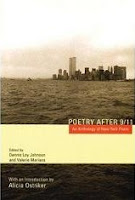 |
| The Devil in the White City |
Erik Larsen
Apparently when Chicago hosted the World's Fair in 1893 it was a big freaking deal. Who knew? (Ok, I bet a lot of people knew, but clearly I was not one of them).
Larsen's book lays out exactly why the fair was such a major production, the immense efforts it required, the staggering obstacles that had to be overcome to have a dazzling spectacle succeed so well.
The parallel plot revolves around early American serial killer Dr. H.H. Holmes. Holmes took advantage of the large, transient crowds drawn to the fair to engage in a hobby a bit less wholesome than riding the Ferris wheel.
All in all, the book was engaging and well written. The only part that bothered me was there was lots of undiluted privilege being flung around. Of course, it's not like I wrote down any examples, like a good book blogger would do. Also, I probably shouldn't have waited eighteen years to finish writing up my thoughts before posting them... Anyway! Read it! And read these other books while you're at it:
Want more like this? Try:
- Theodore Dreiser, Sister Carrie. Those scenes when Carries first arrives in Chicago, when the city is still comprised largely of vacant lots, sprang to mind as I read about Chicago and the Fair being constructed.
- Upton Sinclair, The Jungle. Chicago was known for its meatpacking, another bit of gruesome business.
- Kevin Davis, Defending the Damned. Meet some modern Chicago killers, and those that defend them.









